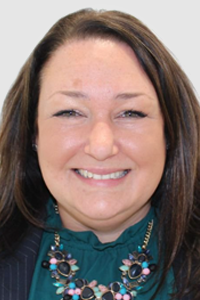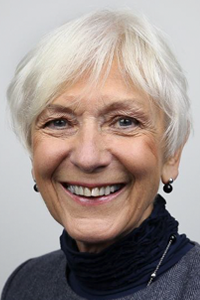A 'digital organisation' is defined by its culture, not its technology. It's about placing it front and centre across the organisation and making it everyone's business. And it's your staff who need to embrace digital ways of working; it's they who will maintain momentum and drive changes. As leaders, building a digital culture will help you attract and maintain digital talent and meet the ever-growing expectations of staff and service users.
Alder Hey Children's Hospital NHS Foundation Trust (Alder Hey) became a Global Digital Exemplar in 2017, achieved HIMMS level 7 in 2021, and we recently rolled out our new Meditech electronic patient record (EPR). Our digital successes stem from our ambition to champion the digital profession and foster a digital culture among staff. Across the trust, digital is understood as a core enabler for improving our services.
Since Covid-19, we've managed to build on this progress. As a trust board, we've made bold choices to invest in our workforce, allowing us to grow our digital capabilities.
At a recent NHS Providers Digital Boards event we, along with our Alder Hey colleagues Chris Grime, chief clinical information officer (CCIO) and Victoria Furfie, CCIO, reflected on some of the key components that have helped us build a digital workforce.
Creating the space for digital leadership
The role of the CCIO is to act as a translator between clinical need and technical possibility. But we learned early on that capturing the range of experiences across our workforce was too large for one person. We therefore split our clinical divisions – medical, surgical and community mental health – and invested in digital leadership, designating a CCIO and a digital lead for each division. Our divisional CCIOs are supported by an organisation-wide CCIO and chief nursing information officer, and we also have a wide group of associate digital roles with representation from as many staff groups as possible.
All our CCIOs and digital roles complete regular walkarounds of our services. Having this level of clinical representation ensures a direct line between the frontline need and the design and delivery of digitally enabled solutions.
Flex your approach based on where you are in the journey
Within Alder Hey, the level of digital maturity is constantly evolving and often differs between clinical divisions. We learned how important it is to be flexible. For example, we are currently looking at associate CCIOs in specific areas where we are doing more development. At the moment this involves electronic prescribing in intensive care, but previously we had resourced specialist oncologist work. Our funding of our digital workforce is constantly changing to reflect where we are in our journey.
Digital leads need protected time and space to properly engage with this work. So, job plans are kept in constant review and flex as our organisational need develops. This approach is only made possible because Alder Hey's leaders, including the board, all understand the level of staff digital commitment and embedding needed to ensure success.
Keep your service users at the centre
Children, young people and their families are at the heart of everything we do, and our digital work is no exception. Getting close to our users' needs requires creativity and thought. During a recent refresh of our organisational strategy over winter, we asked every child to make a Christmas bauble sharing what they wanted most from the strategy, and we received close to 800 responses, many of which related to our digital services.
Co-design and co-production can be incredibly powerful. But focus groups simply won't cut it – programmes need to be user-led from the outset. At Adler Hey this often means tapping into patient and parent groups that already exist where our users challenge our thinking and inject fun into our digital teams.
When we let young people choose our digital priorities, we heard that the interface for our 13 different services for mental health wasn't working and needed to be easier to use. We are proud to say that initiatives like our mental health referral platform are designed for young people, by young people.
Keep to your word – if you say it, do it
Nothing erodes trust and good will in your organisation’s digital programmes faster than falling short on commitments. If you say it, do it. At Alder Hey we have worked hard to build trust with our workforce by being realistic, accountable and honest when things don’t go as planned.
During Covid-19, we experienced delays to our EPR programme, and as a consequence staff were left frustrated. We communicated honestly about the delays and explained that we were prioritising getting it done right over getting it done quickly. This open communication about challenges, in addition to broadcasting our successes, permeates through the organisation and helps build trust moving forward.
Aim high and stretch your digital ambitions as a board
As a board, your role is to challenge and stretch, as well as support the good work that's already going on. Looking forward, all new models of care will be underpinned by digital and so the board must be serious about digital transformation as a way of future proofing, as well as meeting current needs.
At Alder Hey, we as a board are clear: set the bar high, be ambitious, offer serious scrutiny and remain realistic and honest – all while embracing a culture of fun and keeping service users at the cornerstone of everything we do.
This opinion piece was first published by The Chartered Governance Institute.
About the authors


